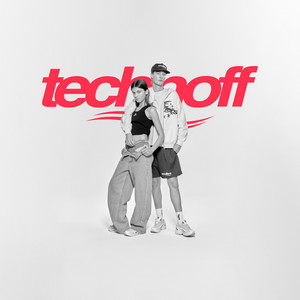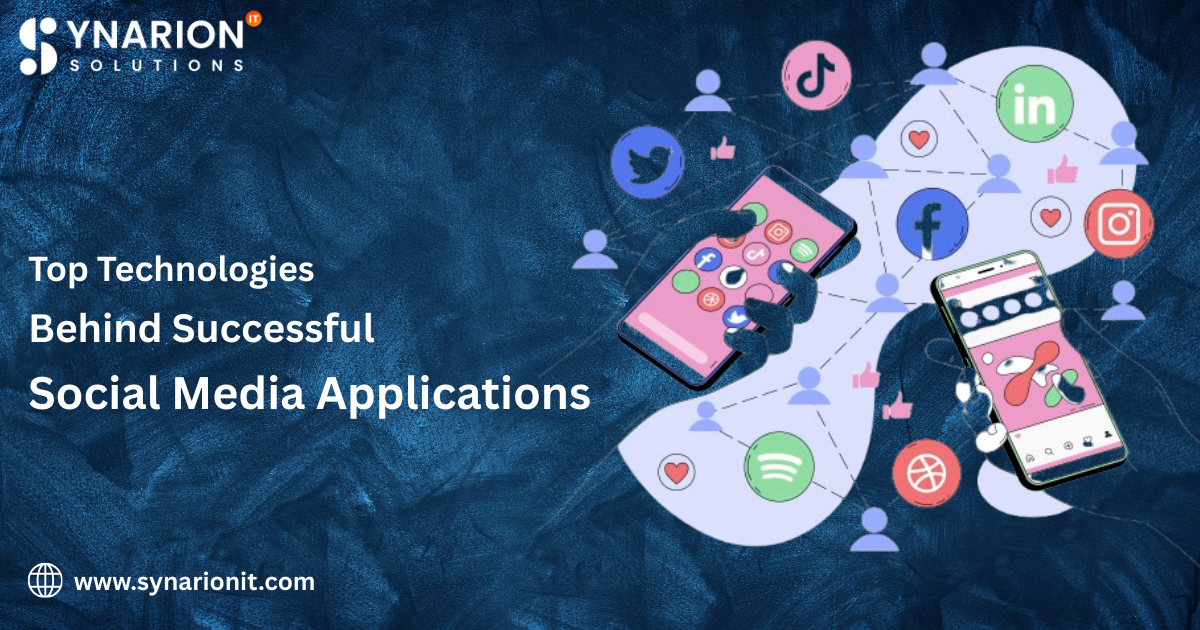Social media now plays a central role in how we communicate, work, and entertain ourselves. From connecting people globally to creating new opportunities for businesses, social media platforms are shaping the way we communicate, share, and consume information. Behind every engaging app like Facebook, Instagram, TikTok, or Twitter lies a robust foundation of technology. Entrepreneurs planning to build their own platform need to understand these technologies to compete in today’s market.
If you are considering building your own app, partnering with an experienced Social Media App Development Company can make all the difference. These experts know which tools, frameworks, and innovations are essential for creating scalable and high-performing social media platforms.
In this blog, we’ll explore the top technologies that power successful social media applications and why they are so important.
1. Cloud Computing: The Backbone of Scalability
Social media platforms deal with massive amounts of data — user profiles, posts, videos, comments, and live interactions. To handle such huge volumes without crashing, cloud computing is the foundation.
- Why it matters: Cloud services like AWS, Google Cloud, and Microsoft Azure ensure flexibility, scalability, and reliability.
- Key benefit: Entrepreneurs don’t need to invest heavily in physical servers; they can scale resources up or down based on user demand.
2. Artificial Intelligence (AI) and Machine Learning (ML)
AI and ML are revolutionizing how users interact with apps. From personalized feeds to detecting harmful content, these technologies are at the core of every successful social media platform.
- AI Applications in Social Media:
- Personalized content recommendations
- Friend or connection suggestions
- Spam and fake account detection
- Automated moderation of posts
- Personalized content recommendations
- ML in Action: Machine learning models analyze user behavior to predict preferences and deliver content that keeps them engaged.
3. Big Data Analytics
Social media platforms thrive on data. Every like, comment, share, or click generates valuable insights. Big data analytics is what makes sense of these massive datasets.
- What it does:
- Tracks user engagement patterns
- Analyzes content performance
- Helps businesses run targeted ads
- Improves app features based on user feedback
Without big data, it would be impossible to manage and interpret the sheer scale of information flowing through apps like Instagram or LinkedIn.
4. Real-Time Messaging Protocols
Instant communication is the soul of social media. Whether it’s chatting on Messenger, replying to tweets, or commenting live during a stream, users expect instant response.
- Technology used: Real-time messaging protocols like WebRTC, MQTT, and Socket.IO power instant communication.
- Use cases:
- Direct messaging
- Video calls and live streams
- Push notifications
- Direct messaging
An experienced Social Media App Development Company integrates these protocols to ensure real-time interactions work smoothly, even with high traffic.
5. Augmented Reality (AR) and Virtual Reality (VR)
Modern social media platforms are not limited to text and images. Augmented Reality (AR) and Virtual Reality (VR) are transforming social platforms with more interactive and lifelike experiences.
- Examples:
- Snapchat filters
- Instagram AR effects
- Virtual meetups in VR-based apps
- Snapchat filters
AR enhances entertainment, while VR opens opportunities for social interaction in virtual spaces. For businesses building the next big platform, adopting AR/VR early can set them apart.
6. Blockchain for Security and Transparency
With increasing concerns around data security and privacy, blockchain technology is becoming a key player in social media app development.
- Benefits of blockchain in social media:
- Ensures data ownership for users
- Reduces chances of data manipulation
- Builds trust by increasing transparency
- Enables decentralized platforms
- Ensures data ownership for users
7. Content Delivery Networks (CDNs)
Speed is everything in social media apps. No one wants to wait for a video or photo to load. Content Delivery Networks (CDNs) step in here to ensure faster and smoother content delivery.
- How CDNs help:
- Reduce loading times by delivering content from servers nearest to the user
- Handle high traffic loads during peak times
- Improve global reach by ensuring content availability worldwide
- Reduce loading times by delivering content from servers nearest to the user
This technology ensures that whether your user is in India or the US, they enjoy a fast and seamless experience.
8. Internet of Things (IoT) Integration
IoT may sound futuristic, but it’s already influencing social media. Think of wearables, fitness trackers, and smart devices that share updates directly on platforms.
- Applications:
- Smartwatches syncing fitness data to social feeds
- Live streaming from IoT-enabled cameras
- Smart devices sharing real-time updates
- Smartwatches syncing fitness data to social feeds
As IoT grows, its role in making social interactions more dynamic will expand, creating new opportunities for entrepreneurs.
9. Video Streaming Technologies
Video dominates social media today — from TikTok shorts to Facebook live. Supporting millions of video streams simultaneously requires robust technology.
- Key technologies: HLS (HTTP Live Streaming), RTMP (Real-Time Messaging Protocol), and adaptive bitrate streaming.
- Features powered by video streaming:
- Live video sessions
- Short-form video feeds
- Interactive video ads
- Live video sessions
A Social Media App Development Company ensures that these streaming technologies are integrated to provide high-quality video without lags or crashes.
10. Advanced Database Management Systems
Behind every social media app is a database that stores user information, posts, and interactions. Choosing the right database is critical.
- Popular choices:
- SQL databases like MySQL and PostgreSQL
- NoSQL databases like MongoDB and Cassandra
- SQL databases like MySQL and PostgreSQL
NoSQL is often preferred for handling unstructured data like images, videos, and posts, while SQL works best for structured data such as profiles and authentication.
11. Cybersecurity Measures
Security cannot be ignored when building a social media app. High-profile breaches have shown how vulnerable platforms can be.
- Technologies used:
- End-to-end encryption for messages
- Multi-factor authentication (MFA)
- Biometric login (fingerprint/face ID)
- Firewalls and intrusion detection systems
- End-to-end encryption for messages
12. Progressive Web Apps (PWAs)
Not every user downloads apps. PWAs provide a solution by blending the experience of web and mobile apps.
- Advantages:
- Works offline
- Lightweight and fast
- Doesn’t require app store downloads
- Works offline
For startups, PWAs are a cost-effective way to reach a broader audience while offering near-native experiences.
Final Thoughts
The success of social media platforms depends not just on design and features but also on the powerful technologies running behind the scenes. From AI-driven recommendations to blockchain-enabled transparency, these technologies shape how users interact with platforms every day.
Entrepreneurs planning to enter this competitive industry should stay ahead of these trends. Partnering with a professional Social Media App Development Company ensures your app is built with the latest tools, frameworks, and innovations needed to thrive in today’s digital-first world.






